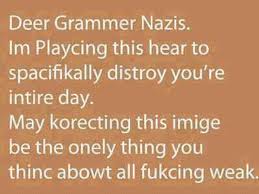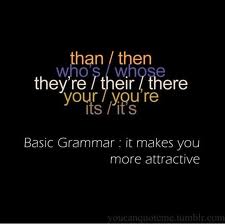First things first lets get a definition of each word to set a base. Now the definition for the word affect according to yourdictionary.com is:
The definition for effect is:
- To have an influence on or cause a change in: Inflation affects the buying power of the dollar.
- To act on the emotions of; touch or move.
- To attack or infect, as a disease: Rheumatic fever can affect the heart.
I am not going to lie I am still a little bit confused. It seems that effect is the word more commonly used than affect as far as when it applies. I think my best bet here is to remember when affect is used and when affect doesn't apply its effect. So according to the definition affect is used when dealing with having influence on or causing a change, acting on emotions, and an attack or infection such as a disease affecting the rate of the heart beat.
- Something brought about by a cause or agent; a result.
- The power to produce an outcome or achieve a result; influence: The drug had an immediate effect on the pain. The government's action had no effect on the trade imbalance.
- A scientific law, hypothesis, or phenomenon: the photovoltaic effect. |
- Advantage; avail: used her words to great effect in influencing the jury.
- The condition of being in full force or execution: a new regulation that goes into effect tomorrow.
- Something that produces a specific impression or supports a general design or intention: The lighting effects emphasized the harsh atmosphere of the drama.
- A particular impression: large windows that gave an effect of spaciousness.
- Production of a desired impression: spent lavishly on dinner just for effect.
- The basic or general meaning; import: He said he was greatly worried, or words to that effect.
I am sure as to why the English language can be so confusing. I love it when words rhyme but why do so many words have to sound so similar and have such different meanings. But on the upside, I at least have a better understanding of homonyms and the use of affect vs effect which in my opinion is one of the most confusing homonyms.


































